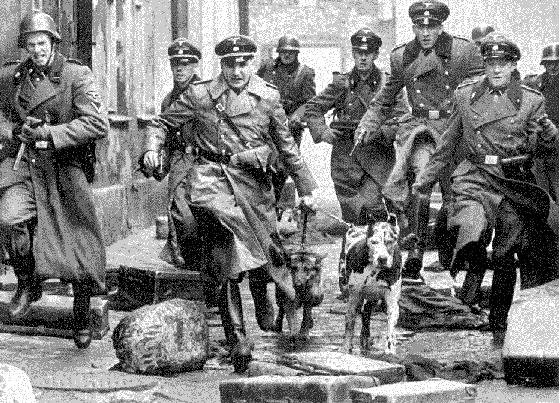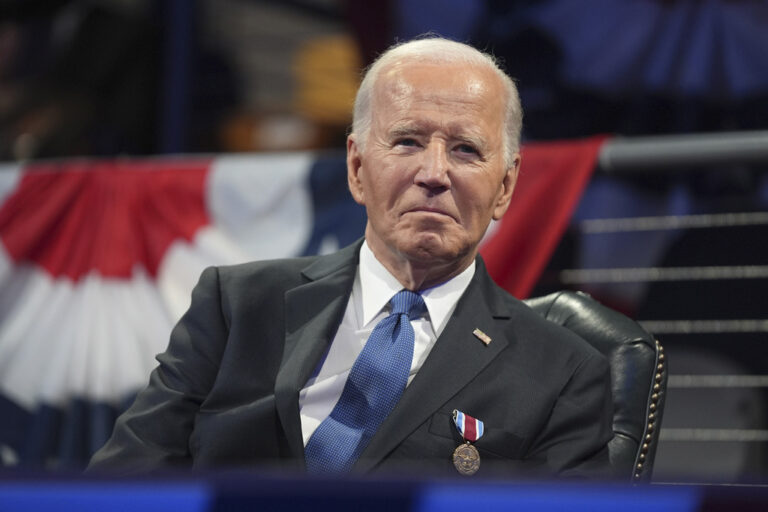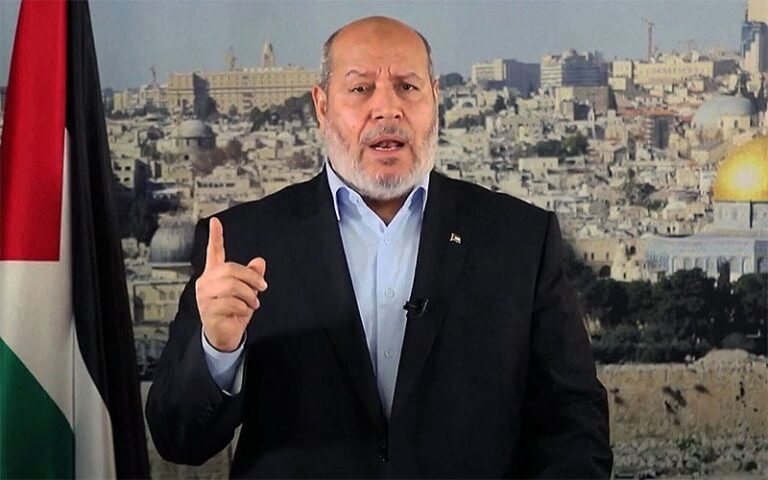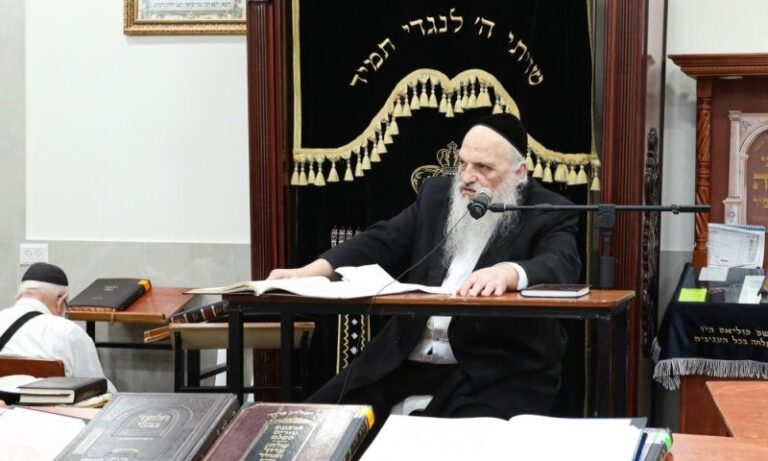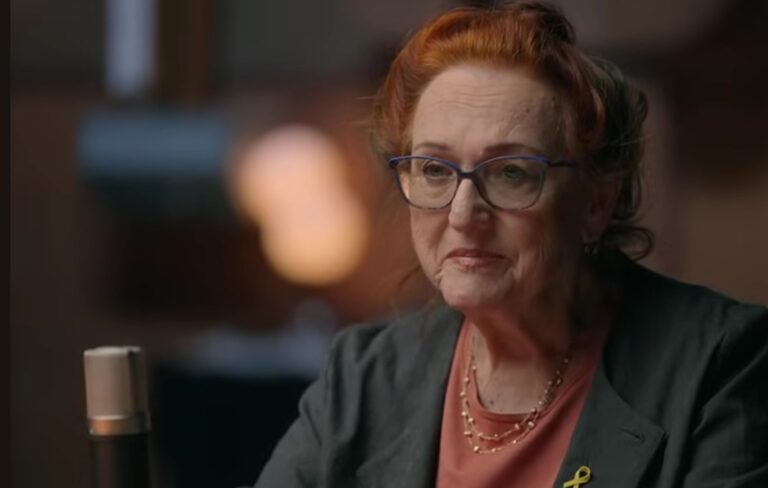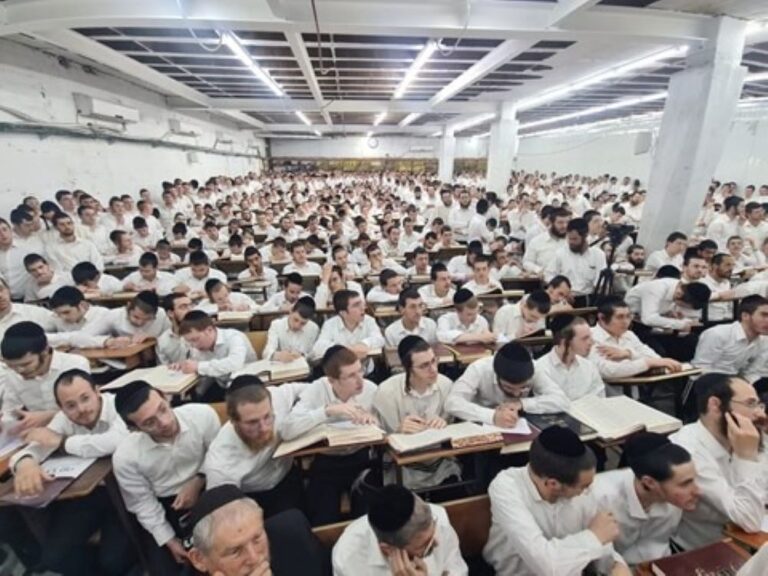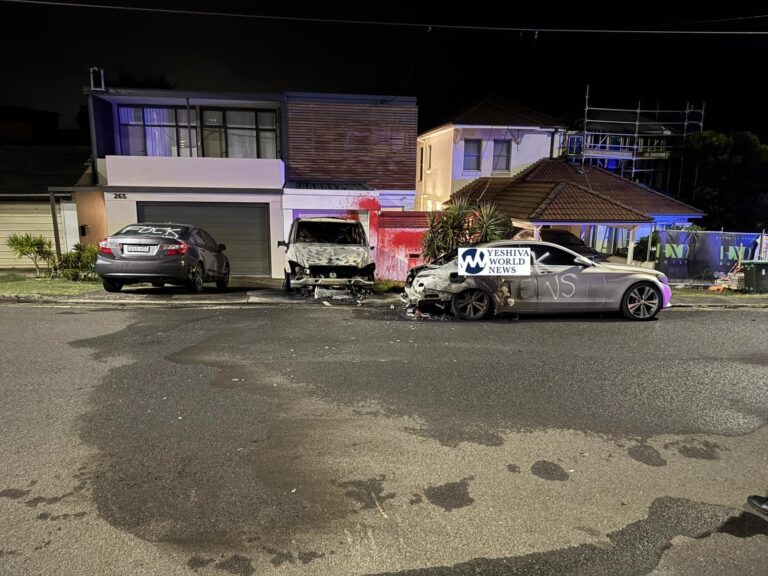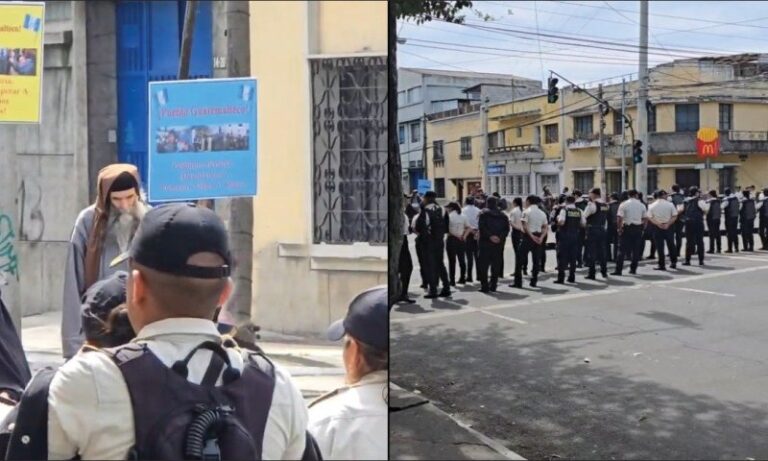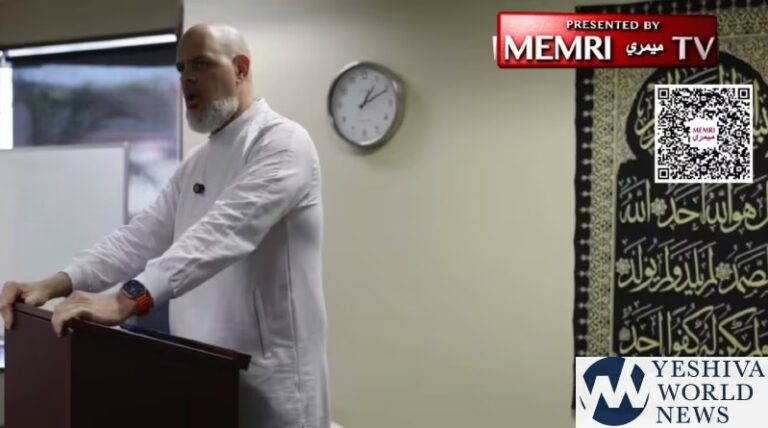Sirens wailed, church bells tolled and yellow paper daffodils of remembrance dotted the crowd as Polish and Jewish leaders extolled the heroism and determination of the Warsaw Ghetto Uprising fighters on the 75th anniversary of their ill-fated rebellion.
Polish President Andrzej Duda and World Jewish Congress President Ronald Lauder said the hundreds of young Jews who took to arms in Warsaw in 1943 against the overwhelming might of the Nazi German army fought for their dignity but also to liberate Poland from the occupying Germans.
The revolt ended in death for most of the fighters, yet left behind an enduring symbol of resistance.
“We bow our heads low to their heroism, their bravery, their determination and courage,” Duda told the hundreds of officials, Holocaust survivors and Warsaw residents who gathered Thursday at the city’s Monument to the Warsaw Ghetto Heroes.
“Most of them died … as they fought for dignity, freedom and also for Poland, because they were Polish citizens,” Duda said.
Lauder said that although the Nazis were defeated and crushed 73 years ago “oppression and oppressors have not gone away and we need each other today like never before.”
“Jews, Catholics, Poles, Americans, all free people should stand together now to make sure that our children and grandchildren never know the true horrors that took place right here,” he said.
People stopped in the street and officials stood at attention as sirens and church bells sounded at noon to mourn for the Jews who died in the uprising, as well as the millions of other Jews murdered in the Holocaust.
The daffodil tradition comes from Marek Edelman, the last surviving commander of the uprising, who on every anniversary used to lay the spring flowers at the monument to the fighters. He died in 2009.
At a separate ceremony at Warsaw’s Town Hall, three Holocaust survivors — Helena Birenbaum, Krystyna Budnicka and Marian Turski — were given honorary citizenship of the city.
In addition to the official observances, hundreds others attended an emotional commemoration by Poles furious at a conservative government that seems to tolerate anti-Semitic views despite its official denunciations of anti-Semitism.
Open Republic, an association that fights anti-Semitism and xenophobia, organized the ceremony to contrast what it called the “hollow nationalist pomp” of the government, recalling how the prime minister earlier this year paid tribute to a Polish wartime insurgency unit that had collaborated with the Nazis.
Their observances began with Yiddish singing and daffodils placed at the monument to a Jewish envoy in London, Szmul Zygielbojm, who committed suicide after the revolt was crushed to protest the world’s indifference to the Holocaust.
Signs of rising nationalism in Poland have strengthened the resolve of those seeking reconciliation. This year a record 2,000 volunteers were handing out the paper daffodils, which have become a moving symbol of Christian Poles expressing their sorrow at the loss of a Jewish community that was Europe’s largest before the Holocaust.
“I feel this is my responsibility and do it with all my heart,” said Barbara Sekulska, 76, who joined the mostly younger volunteers.
The Warsaw Ghetto uprising broke out April 19, 1943, when about 750 young Jewish fighters armed with just pistols and fuel bottles attacked a much larger and heavily armed German force that was putting an end to the ghetto’s existence. In their last testaments they said they knew they were doomed but wanted to die in struggle, at a time and place of their own choosing. They held out nearly a month, longer than some German-invaded countries did.
The Germans razed the Warsaw Ghetto and killed most of the fighters, except for a few dozen who managed to escape through sewage canals to the “Aryan” side of the city, Edelman among them.
Major celebrations were also held in Israel to mark the 70th anniversary of the founding of that nation in 1948.
(AP)

